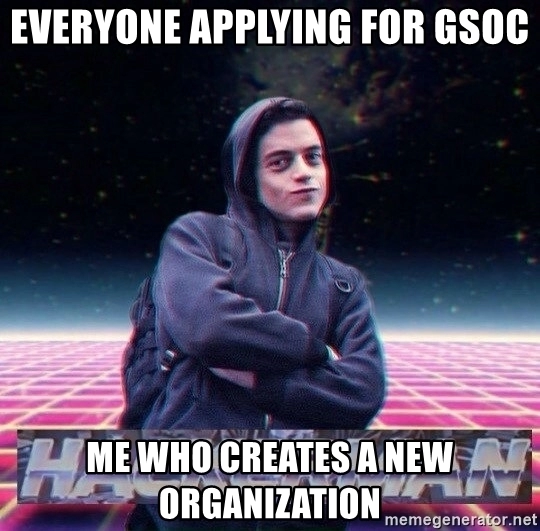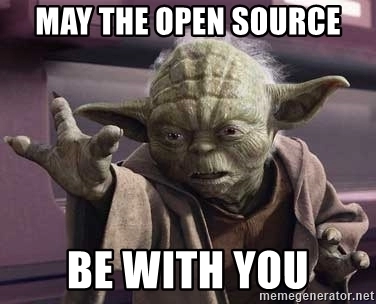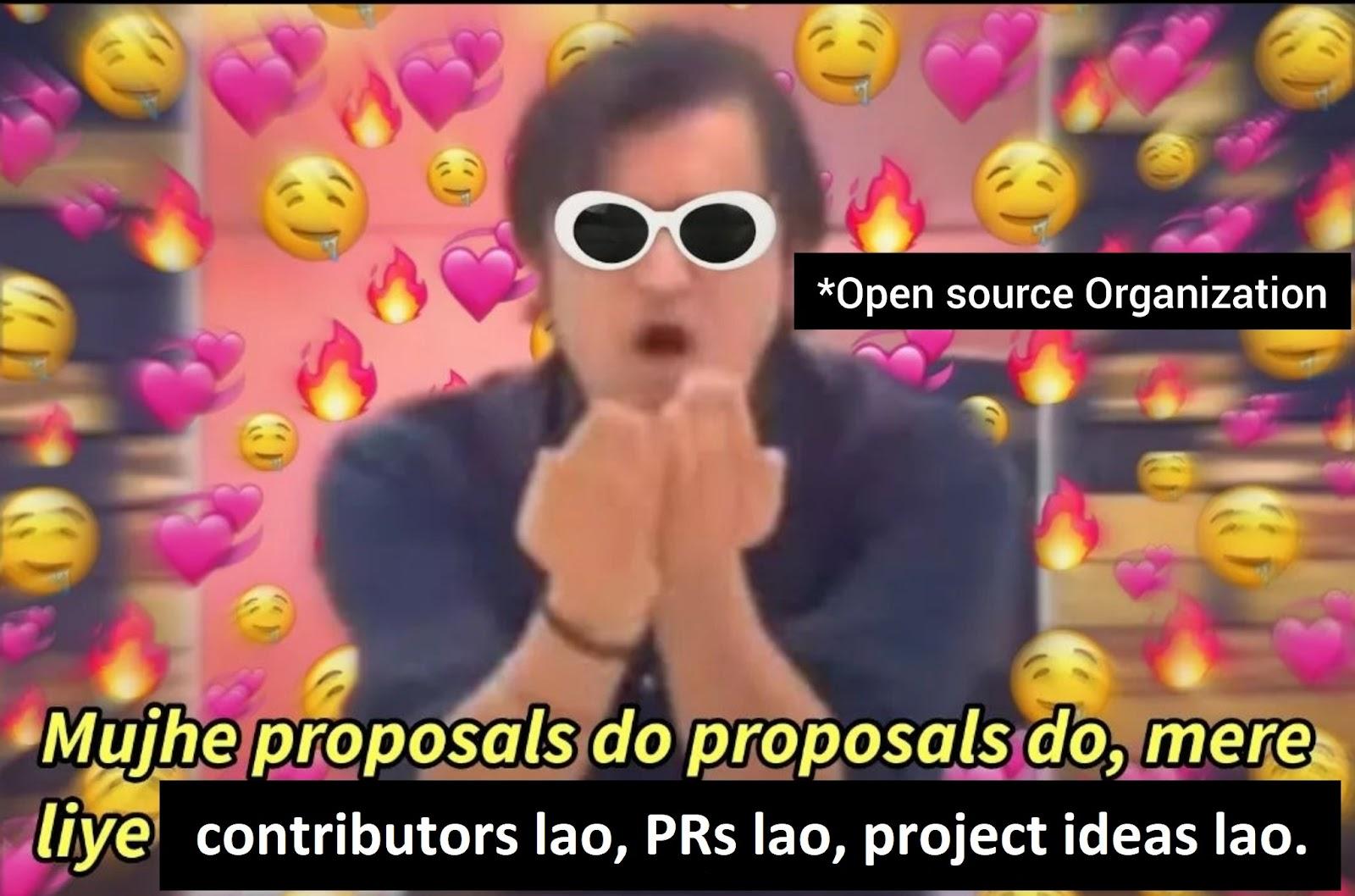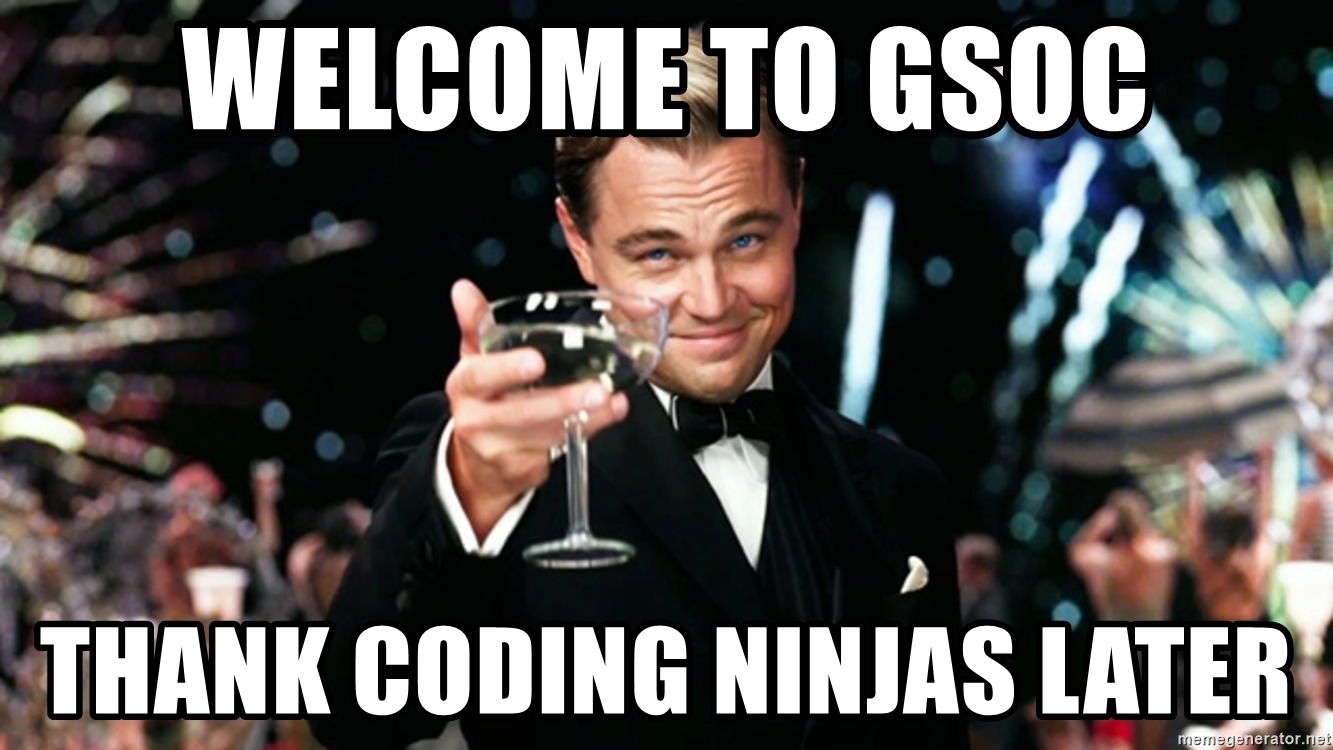Introduction
So you are an open-source contributor or just starting to be one and want to participate in Google Summer of Code (GSoC) but don't know how to start? 😕
Don't worry, here is the best guide on the internet about Google Summer of Code (GSoC) which might be the only one you need.
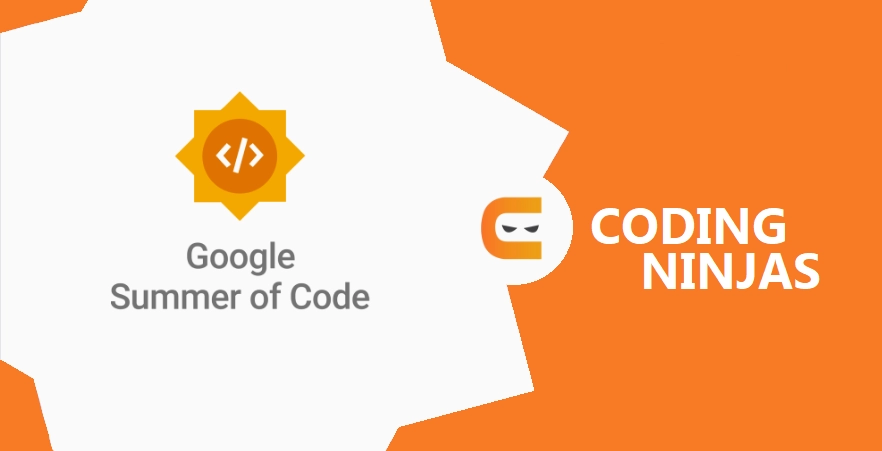
If you don't know, Google Summer of Code is a global, online program that brings new contributors to open-source software development. GSoC Contributors work with an open-source organization on a 12+ week programming project under the guidance of mentors.
What is GSoC?
The Google Summer of Code, abbreviated to GSoC, is an annual international program. Google awards stipends to contributors who complete a free and open-source software coding project during the summer. As of 2022, the program is open to anyone aged 18 or over, no longer just students and recent graduates. Google first held it from May to August 2005. Participants get paid to write software, with the amount of their stipend depending on the country's purchasing power parity. Project ideas are listed by the host organizations involved in open-source software development, though students can also propose their project ideas.
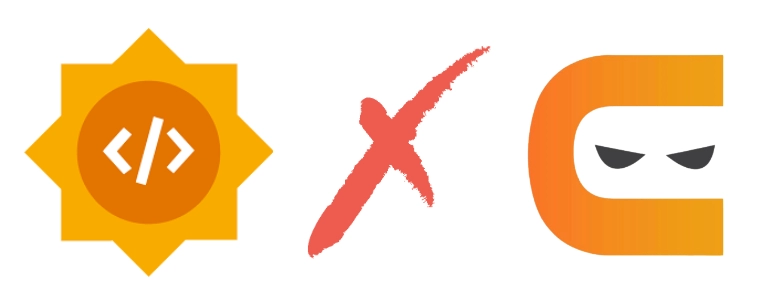
The vision for the Summer of Code came directly from Google's founders, Sergey Brin & Larry Page. From 2007 to 2009, Leslie Hawthorn, who has been involved in the project since 2006, was the program manager. From 2010 until 2015, Carol Smith was the program manager. Since 2016, Stephanie Taylor has taken over the management of the program.
Watch the video to know more about Google Summer of Code (GSoC).
GSoC Essentials
This section will get the essential knowledge about Google Summer of Code (GSoC) that a beginner contributor must know.
Goals of the Program
The GSoC program contains several goals:
- Motivate developers to begin participating in open-source development.
- Support open-source projects to identify and bring in new developers.
- Obtain more open-source code written and released for the benefit of all.
- Offer newer developers more exposure to real-world software development (distributed development & version control, software licensing issues, testing, and communication best practices).

Eligibility
To participate in GSoC, a student must meet the following criterion:
- Be eighteen (18) years of age or older upon registration for the program.
- Have not already been accepted as a student in GSoC more than once.
- For the duration of the program, be eligible to work in the country in which they reside.
- Not be an Organization Administrator or Mentor in the program.

You can find more eligibility criteria here.
Basic Requirements
- Command of at least one programming language like C, C++, Java, Python, or Ruby. Also, have experience in it at the university level.
- Familiar with the version control (Know-how of Git & Github).
- Know how to contribute to open-source projects.
- Comfortable with Linux or Ubuntu. If you use windows, you will get stuck in the middle. Many development tools and technologies don't run well on Windows and almost all GSoC organizations code for Linux systems or servers.

Benefits of participating in GSoC
- The student will learn about the working of an industry in just three months along with software development skills and get to know more about open source. You learn lots of technologies, tools, and version control.
- You will build a network of people with the same mindset and build a strong network with good mentors and programmers.
- Participating in GSoC opens a lot of opportunities for you. The community members can refer you somewhere, or you can also get the internship opportunity. Many also got a referral for the application in Google for an internship or full-time job position opportunity.
- Certainly tag of Google or GSoC gives you international credibility and benefits everywhere, from attending the conferences to boosting your resume.
- And obviously, you will get the stipend. For India, the stipend amount is $1500 and $3000 for medium and large-size projects. You can find the stipend of other countries from here.

Even if your proposal is rejected, you can continue contributing to the repository. You will miss on the money, but it's okay. You will still learn a lot.
Program Timeline
Here is the full timeline of the Google Summer of Code (GSoC) program.
Organization Application Period |
Open-source organizations can submit their applications to the mentor organizations for GSoC. |
Organizations Announced |
Possible GSoC contributors discuss project ideas with accepted mentor organizations. |
Contributor Application Period |
Possible GSoC contributors can register and submit their proposals to the mentor organizations that interest them. |
Proposal Review Period |
Organizations review & select contributor proposals. |
Contributor Projects Announced |
Accepted GSoC contributors are paired with mentors and start planning their projects and milestones. |
Community Bonding |
GSoC contributors spend three weeks learning about their organization's community and preparing for their coding project. |
Coding Period |
GSoC contributors begin work on their Google Summer of Code projects. |
Evaluations |
Mentors & GSoC contributors submit their evaluations of one another. |
GSoC contributors Submit Code & Final Evaluations |
GSoC contributors submit their code, project summaries, and final evaluations of their mentors. |
Mentors Submit Final Evaluations |
Mentors review their GSoC contributor code samples & determine if they should pass the Google Summer of Code Program. |
Results Announced |
GSoC contributors are notified of pass/fail status of their Google Summer of Code projects. |


